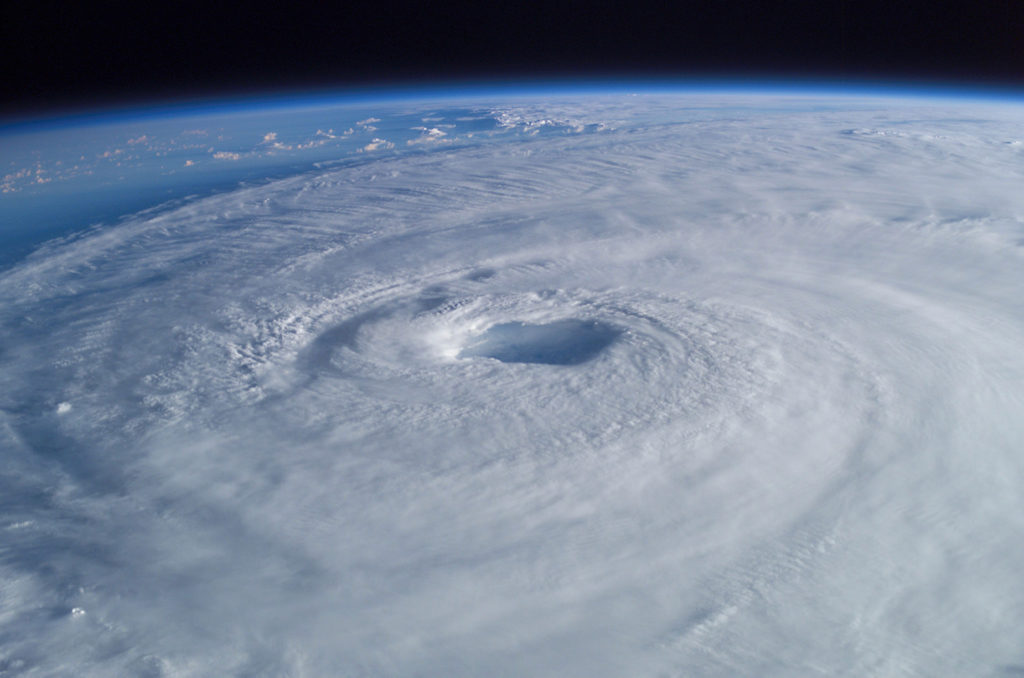
Colorado State University hurricane researchers on Thursday slightly increased their forecast for the Atlantic hurricane season and now call for a very active season in 2020, citing the likely absence of El Niño as a primary factor.
According to a news release issued Thursday morning, the CSU Tropical Meteorology Project team is predicting 19 named storms in 2020, including the three named storms that have already formed (Arthur, Bertha and Cristobal). Of those, researchers expect nine to become hurricanes and four to reach major hurricane strength (Saffir/Simpson Category 3 to 5) with sustained winds of 111 miles per hour or greater. This is a slight increase from the early April prediction of 16 named storms, eight hurricanes and four major hurricanes.
The forecast of more storms does not directly affect the chances of any particular storm making landfall in the U.S. Virgin Islands, emergency officials often point out, so residents are advised to do their storm prep early and keep an eye on the weather. Residents can sign up for Alert V.I. , which sends updates on storm conditions either via text, email, phone or hearing-impaired device.
The researchers in Colorado said sea-surface temperatures averaged across portions of the tropical Atlantic are somewhat above normal, while the subtropical Atlantic is much warmer than average. This type of sea-surface temperature configuration is also considered favorable for an active 2020 Atlantic hurricane season.
The tropical eastern and central Pacific currently has cool neutral “ENSO conditions” – or El Niño/Southern Oscillation. This means the water temperatures are slightly below average. CSU anticipates that these waters will continue to cool relative to their long-term averages over the next several months, which would lessen the chance of El Niño conditions. El Niño tends to increase upper-level westerly winds across the Caribbean into the tropical Atlantic, tearing apart hurricanes as they try to form.
The Caribbean and central tropical Atlantic are somewhat warmer than normal. Warmer than normal sea-surface temperatures provide more fuel for tropical cyclone formation and intensification, according to the meteorologists. They are also associated with a more unstable atmosphere as well as moister air, both of which favor organized thunderstorm activity that is necessary for hurricane development.
The CSU Tropical Meteorology Project team bases its forecasts on several statistical models that are built on 25-40 years of historical hurricane seasons and evaluate conditions including: Atlantic sea-surface temperatures, sea level pressures, vertical wind shear levels (the change in wind direction and speed with height in the atmosphere), El Niño (warming of waters in the central and eastern tropical Pacific) and other factors.
So far, the 2020 hurricane season is exhibiting characteristics similar to 1995, 2003, 2008, 2011, 2013 and 2016. “Five of these six seasons had above-average Atlantic hurricane activity, while 2013 was an extremely quiet season,” said Phil Klotzbach, research scientist in the Department of Atmospheric Science and lead author of the report.
The team predicts that 2020 hurricane activity will be about 150 percent of the average season. By comparison, 2019’s hurricane activity was about 120 percent of the average season. The 2019 season was most notable for Hurricane Dorian, which devastated the northwestern Bahamas, and for Tropical Storm Imelda, which caused tremendous flooding in portions of southeast Texas.
The CSU team will issue forecast updates on July 7 and August 6.





